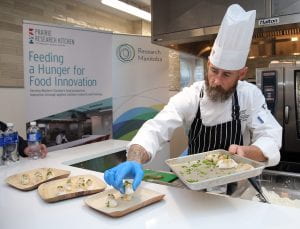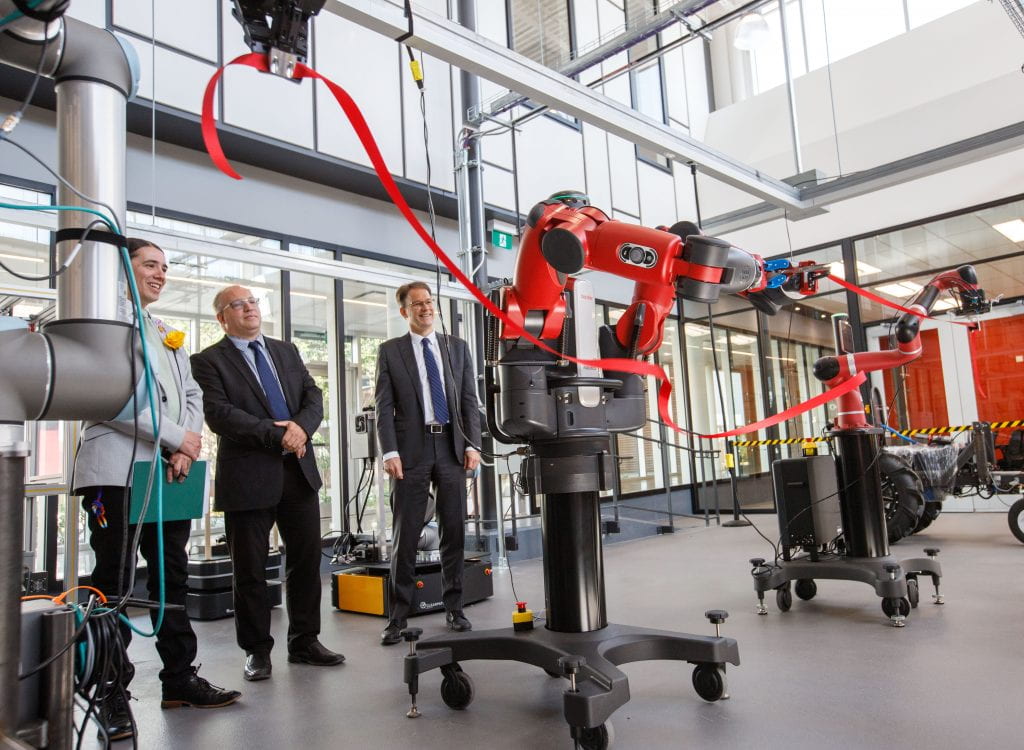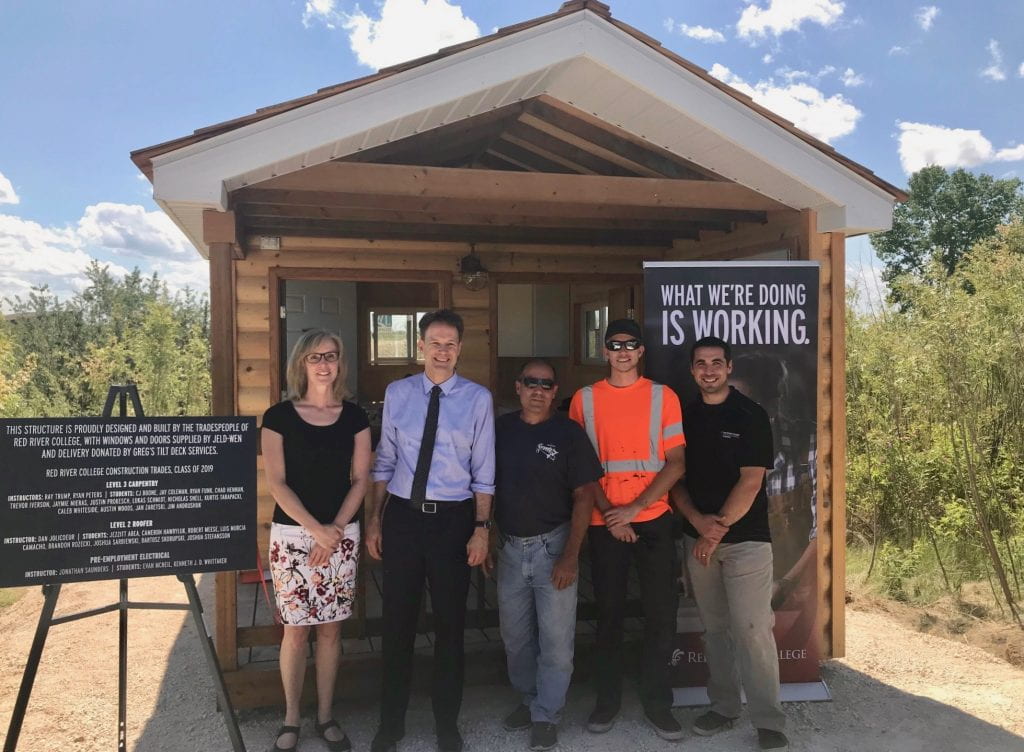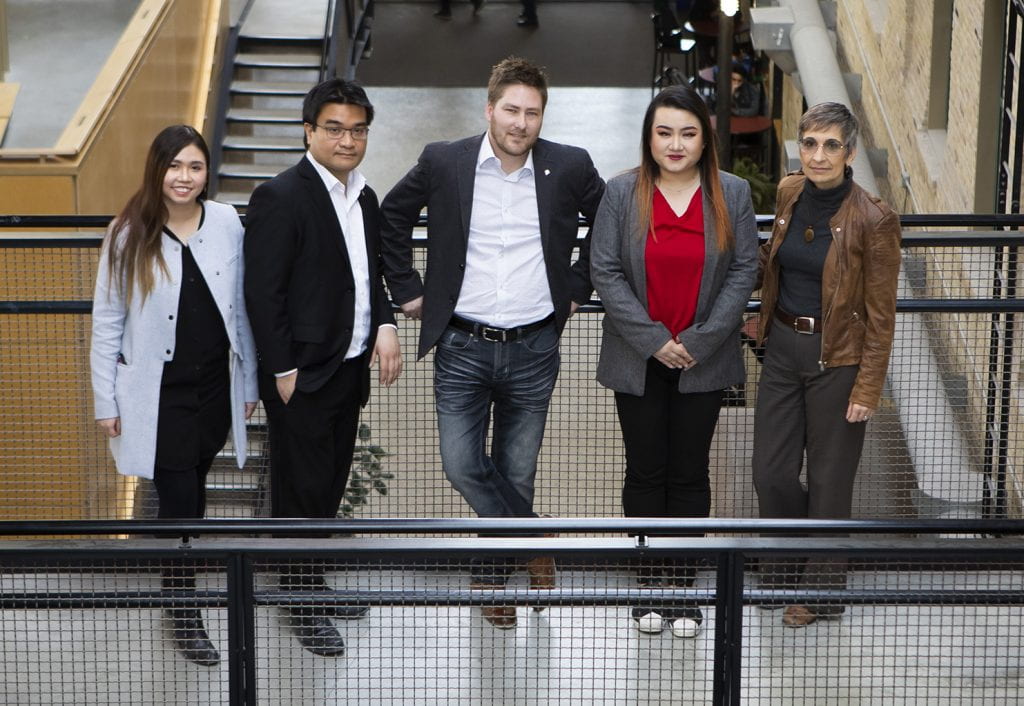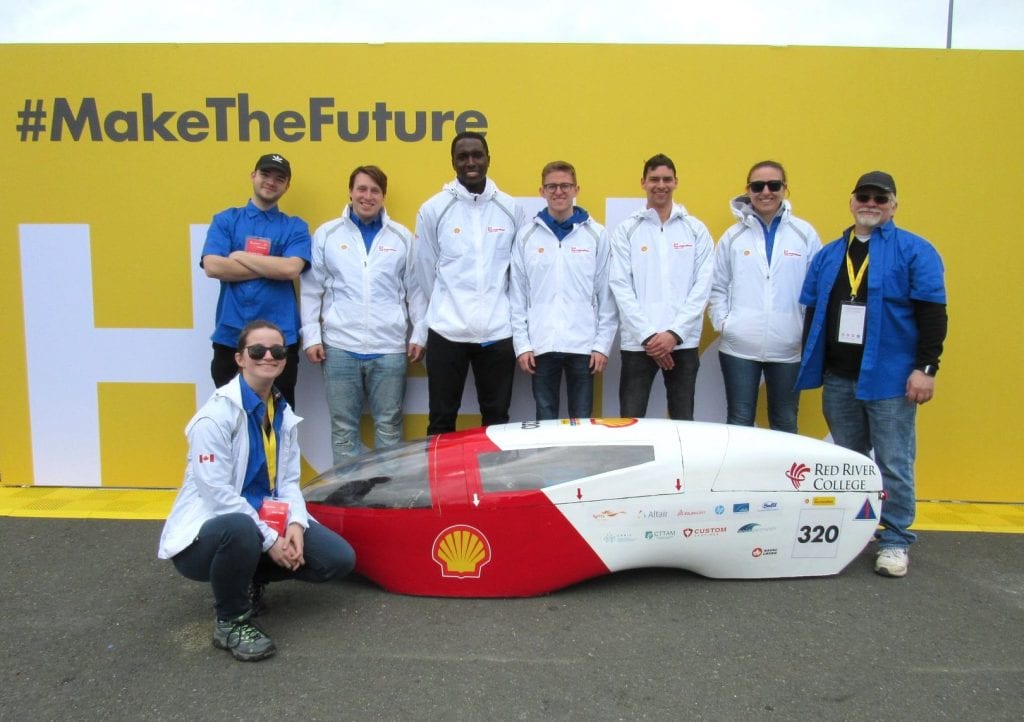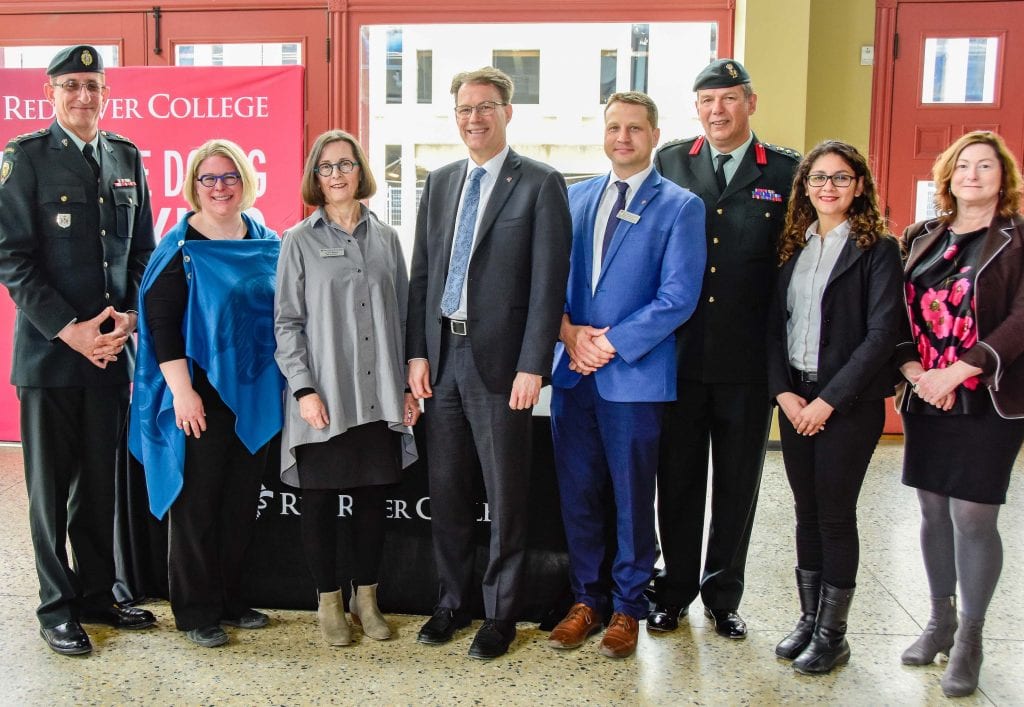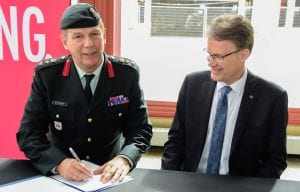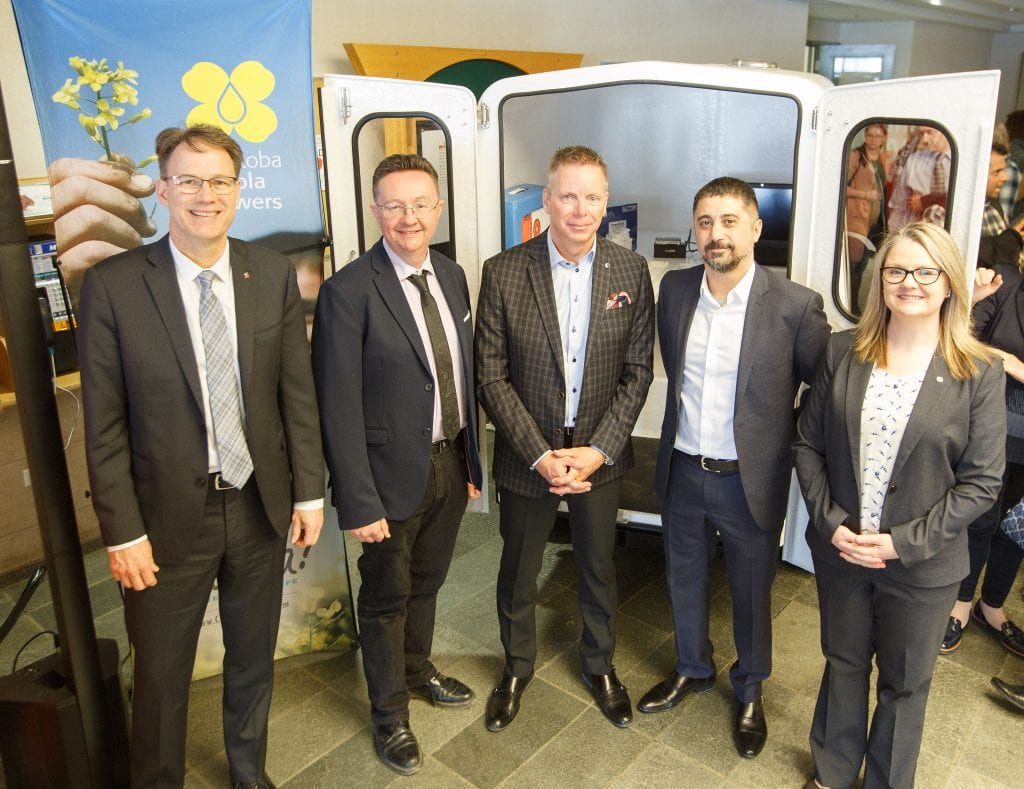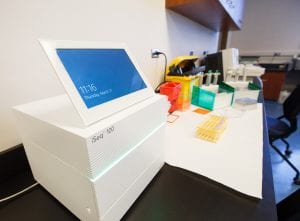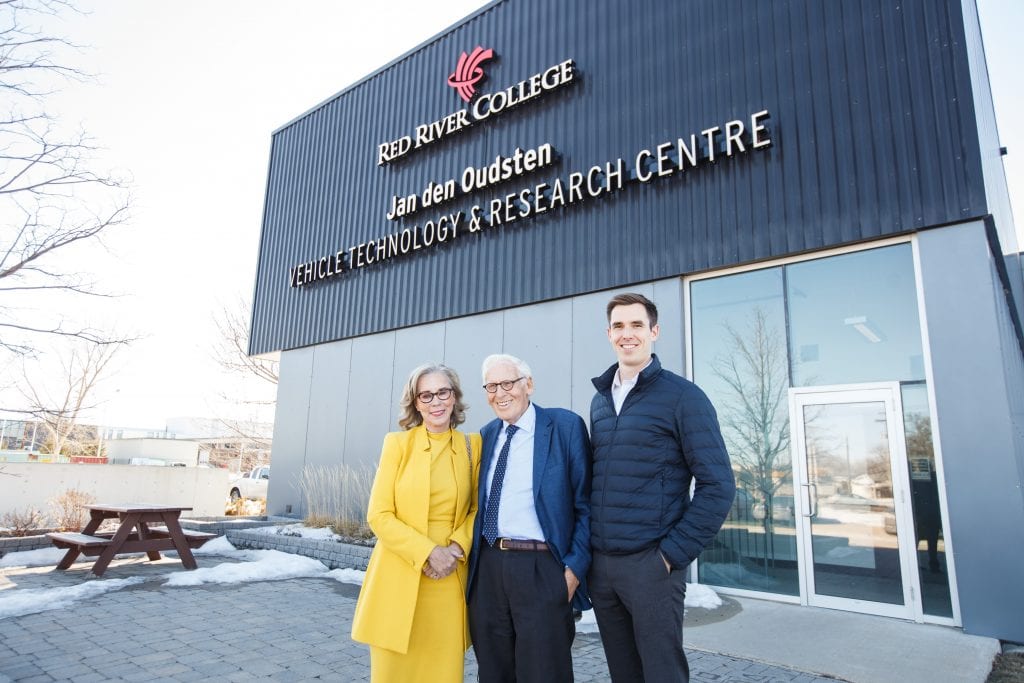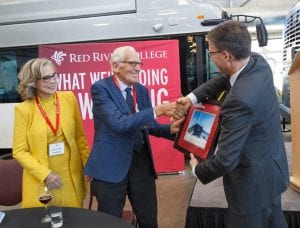College feeds local economy with unveiling of new culinary research kitchen
Manitoba’s vital agriculture and food industry is getting another boost with today’s grand opening of Red River College’s Prairie Research Kitchen.
The new research facility brings food science, culinary arts and industry together on the eleventh floor of RRC’s Paterson GlobalFoods Institute. The kitchen supports industry growth through new product development and by providing culinary students with food science skills required by this crucial economic sector.
“The Prairie Research Kitchen supports the growth of our ever-important agriculture and food industry, and helps build on Manitoba’s protein advantage, which is one of our strategic priorities,” says Economic Development and Training Minister Ralph Eichler (shown above, at right, with interim RRC President Darin Brecht).
“The Province of Manitoba is pleased to have provided $1 million from Research Manitoba towards the construction of the research kitchen, as culinary research is an area of tremendous opportunity. It’s exciting to see the College’s research chefs put their skills and expertise to work creating food products that are not only good for our health, but are also good for Manitoba’s economy.”
Food and feed processing is the largest manufacturing sub-industry in Manitoba, accounting for 26 per cent of manufacturing sales in 2018. Many of the companies working in this area are SMEs, and this is where the Prairie Research Kitchen comes in — working directly with small and medium-sized operations to help bring new ideas and products to life. Read More →


